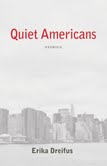Friday Finds for Writers
 Writing-related resources, news, and reflections to read over the weekend. (more…)
Writing-related resources, news, and reflections to read over the weekend. (more…)
 Writing-related resources, news, and reflections to read over the weekend. (more…)
Writing-related resources, news, and reflections to read over the weekend. (more…)
Monday brings the weekly batch of no-fee competitions/contests, paying submission calls, and jobs for those of us who write (especially those of us who write fiction, poetry, and creative nonfiction). (more…)
 Writing-related resources, news, and reflections to read over the weekend.
Writing-related resources, news, and reflections to read over the weekend.
Have a great weekend, everyone. Yes, Monday’s a holiday here in the U.S., but the blog will be back then nonetheless!
 So, as I’ve mentioned, I spent last weekend in Boston at Grub Street’s outstanding annual conference, The Muse & the Marketplace. I’m beginning to sound like a broken record here, but I’m honestly not sure how the team manages to improve this conference each year. Quite simply, they continue to outdo themselves.
So, as I’ve mentioned, I spent last weekend in Boston at Grub Street’s outstanding annual conference, The Muse & the Marketplace. I’m beginning to sound like a broken record here, but I’m honestly not sure how the team manages to improve this conference each year. Quite simply, they continue to outdo themselves.
I love this conference for lots of reasons: I love seeing so many familiar, friendly faces (and meeting so many new folks, especially those who tell me how much they appreciate this blog and the newsletter); I love being back in Boston; I love the conference’s super-smooth organization (both on site and behind the scenes–it is a delight to be a presenter at this conference); and of course, I love the programming.
On that last point, please consider the following: (more…)
 As I mentioned not too long ago, my book of short stories, Quiet Americans, has been out in the world for a little over two years. And at the end of every quarter, I offer a financial contribution based on recent sales to The Blue Card, an organization that supports survivors of Nazi persecution. Within the next week, Q1 for 2013 will draw to a close; if you’ve been meaning to purchase a copy of the book, now would be an especially meaningful time to do so, with Yom HaShoah (Holocaust Remembrance Day) coming up on April 7-8.
As I mentioned not too long ago, my book of short stories, Quiet Americans, has been out in the world for a little over two years. And at the end of every quarter, I offer a financial contribution based on recent sales to The Blue Card, an organization that supports survivors of Nazi persecution. Within the next week, Q1 for 2013 will draw to a close; if you’ve been meaning to purchase a copy of the book, now would be an especially meaningful time to do so, with Yom HaShoah (Holocaust Remembrance Day) coming up on April 7-8.
I continue to be surprised (and deeply moved) by the reviews that readers share online after they read Quiet Americans. Most recently, on Goodreads, I’ve discovered these assessments:
Normally I dismiss short story collections because they do not allow me to become involved in the characters and the plot. Quiet Americans was different. All the stories revolved around the individuals and families coping with life before, during, and after the Holocaust. The characters were real, multi-dimensional, and the stories moving. Like others, I look forward to reading more from this author.
A powerful collection of short stories. While each vignette stands on its own, they all form a cohesive, striking portrait spanning several generations. Characters, like Dr. Weldmann, are faced with crucial decisions: to speak out or to stay silent. Dreifus’s narrators may vary in point of view but they never fail to draw us in quickly. The narrator of “Matrilineal Descent” breaks through that fourth wall to speak to its readers who, like the narrator, may have researched their ancestors only to find indeterminate statements “für tot erklärkt seit..” Refreshing to pick up a book by a young US writer with a gift not only for English but for other languages. I look forward to Ms. Dreifus’s next book.

(The penultimate line of that second review held extra meaning for me given what some of you may remember I encountered as an MFA student.)
In any case, as another quarter closes, and another Yom HaShoah approaches, I remain infinitely grateful for the support that Quiet Americans continues to garner. Thank you all so very much!